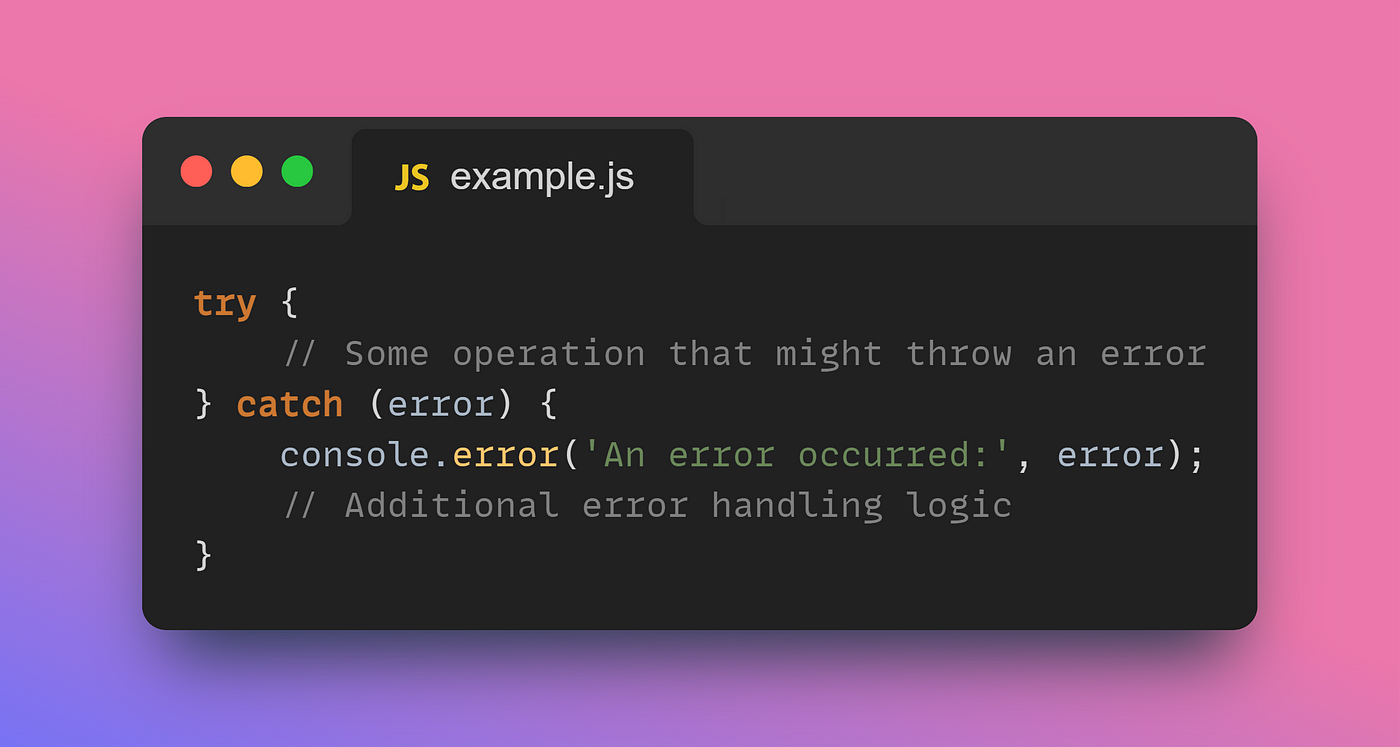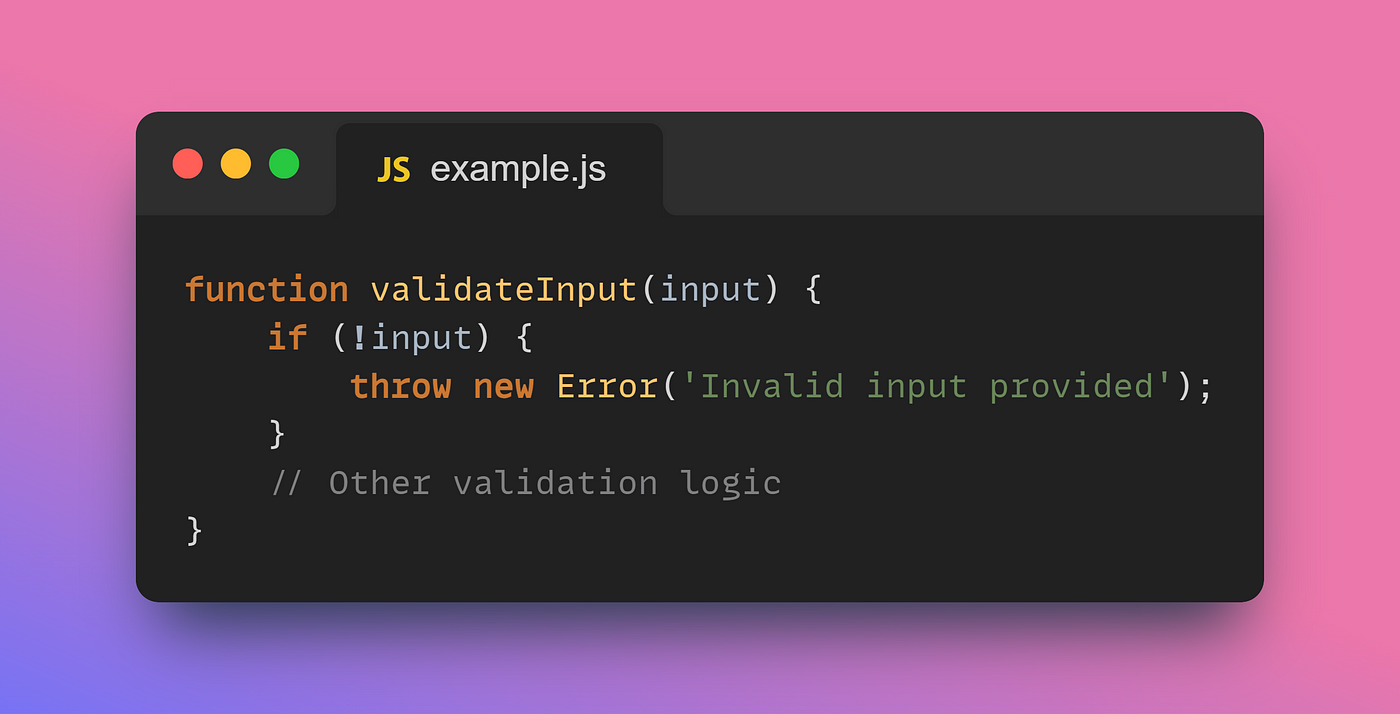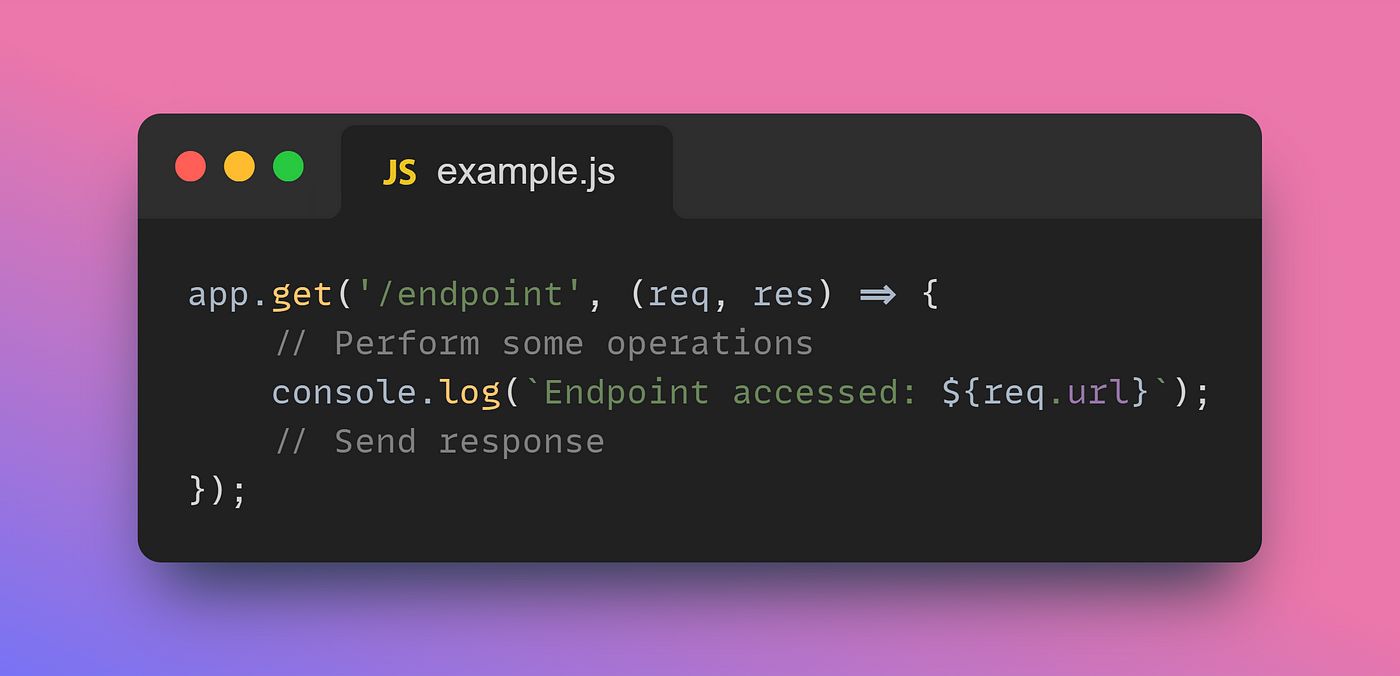
Deep Dive into Error Handling and Logging in Node.js
Mastering the essentials of error handling and logging in Node.js for more resilient backends.
Dev Orbit
June 23, 2025
Effective error handling and logging are the backbone of reliable Node.js applications. Without them, even minor issues can spiral into major outages or user-facing bugs. This guide takes a deep dive into the core principles of error handling and logging in Node.js—unpacking their critical roles, highlighting common pitfalls and demonstrating how to implement resilient, scalable solutions using real-world examples and proven patterns. Whether you're building APIs or full-stack apps, mastering these practices will greatly enhance your application's stability and maintainability.
Advantages of Robust Error Handling and Logging
Streamlined Debugging Process :
Efficient error handling coupled with detailed logs significantly expedites the debugging process. It allows developers to swiftly trace and rectify issues, ultimately reducing downtime and enhancing the user experience. It also help in reducing debugging time and enhancing troubleshooting capabilities.

Enhanced Application Stability and Reliability :
Strategically handled errors act as safety nets, preventing unexpected crashes or disruptions. They instill confidence in the application’s stability, thereby fortifying its reliability. Properly handled errors and comprehensive logs contribute to increased application stability, allowing developers to catch and resolve issues before they escalate.

Insights for Performance Optimization :
Comprehensive logs serve as treasure troves of insights into system behavior. They play a pivotal role in identifying bottlenecks, inefficiencies and aiding in performance optimization.

Disadvantages of Inadequate Error Handling and Logging
Reduced Diagnosing Efficiency :
Insufficient error messages or logs significantly impede developers ability to diagnose issues efficiently. Vague error descriptions prolong debugging cycles and hinder quick resolutions.
Difficulty in Root Cause Analysis :
Lack of detailed error messages or logs makes root cause analysis challenging to diagnose and resolve problems effectively. It becomes arduous to identify the core issues, leading to delays in problem resolution.
Best Practices for Error Handling and Logging
Consistent Error Handling Patterns :
Consistency in error handling is paramount. Whether utilizing try-catch blocks, Promises or async/await, maintaining uniformity across the codebase fosters clarity and ease of maintenance.
Specialized Error Classes :
Adopting specialized error classes facilitates a granular approach to error classification and handling. It enables developers to discern between different types of errors, enhancing the troubleshooting process.
Implement Robust Logging Libraries :
Robust logging libraries such as Winston or Bunyan provide powerful tools for generating detailed logs with varying levels of severity and pertinent contextual information.
Contextual Information in Logs :
Incorporating contextual information, such as request IDs, user details or system configurations, within logs enriches their value. It simplifies debugging and accelerates issue resolution.
Centralized Log Monitoring :
Centralized log monitoring tools empower developers by aggregating and analyzing logs, facilitating proactive identification of anomalies or patterns and expediting issue resolution.
Example of Error Handling
function fetchData() {
return new Promise((resolve, reject) => {
// Simulated database query
const data = null; // after get from perameteres
if (!data) {
// Error not properly handled
reject('Data not found');
}
resolve(data);
});
}
// Incorrect: Calling fetchData without error handling //
fetchData()
.then((data) => {
console.log(data);
});
// Correct: Implementing error handling with catch
fetchData()
.then((data) => {
console.log(data);
})
.catch((error) => {
console.error(error);
});Example of Logging Strategies
const winston = require('winston');
const logger = winston.createLogger({
level: 'info',
format: winston.format.json(),
transports: [
new winston.transports.File({ filename: 'error.log', level: 'error' }),
new winston.transports.File({ filename: 'combined.log' })
]
});
function processOrder(order) {
try {
// Process order logic
if (order.items.length === 0) {
throw new Error('No items in order');
}
// ...
logger.info('Order processed successfully');
} catch (error) {
logger.error('Error processing order:', error);
}
}Conclusion
In the dynamic landscape of Node.js backend development, error handling and logging emerge as fundamental pillars. While adept error handling and logging offer advantages like accelerated debugging and enhanced stability, inadequate practices can impede issue diagnosis and root cause analysis. By meticulously implementing consistent error handling, leveraging specialized error classes, adopting robust logging strategies and harnessing centralized monitoring, developers can fortify their applications, streamline debugging and ensure a more resilient backend infrastructure.

Enjoyed this article?
Subscribe to our newsletter and never miss out on new articles and updates.
More from Dev Orbit

AI Is Reshaping Jobs — and That Could Hit You Hard
As artificial intelligence continues to evolve, its impact on the job market is growing more profound each day. In this article, we will explore how AI technologies like GPT-5 are transforming various industries, the potential risks for workers, and actionable steps to navigate this changing landscape. From automation to the creation of new job roles, we will offer insights that every professional should be aware of to remain competitive in the era of AI.

NestJS Knex Example: Step-by-Step Guide to Building Scalable SQL Application
Are you trying to use Knex.js with NestJS but feeling lost? You're not alone. While NestJS is packed with modern features, integrating it with SQL query builders like Knex requires a bit of setup. This beginner-friendly guide walks you through how to connect Knex with NestJS from scratch, covering configuration, migrations, query examples, real-world use cases and best practices. Whether you're using PostgreSQL, MySQL or SQLite, this comprehensive tutorial will help you build powerful and scalable SQL-based applications using Knex and NestJS.

Mistral AI Enhances Le Chat with Voice Recognition and Powerful Deep Research Capabilities
In an era where communication and information retrieval are pivotal to our digital interactions, Mistral AI has raised the bar with its latest upgrades to Le Chat. By integrating sophisticated voice recognition and advanced deep research capabilities, users will experience unparalleled ease of use, as well as the ability to access in-depth information effortlessly. This article delves into how these innovations can transform user experiences and the broader implications for developers and AI engineers.

Best Cloud Hosting for Python Developers in 2025 (AWS vs GCP vs DigitalOcean)
Finding the Right Python Cloud Hosting in 2025 — Without the Headaches Choosing cloud hosting as a Python developer in 2025 is no longer just about uptime or bandwidth. It’s about developer experience, cost efficiency and scaling with minimal friction. In this guide, we’ll break down the top options — AWS, GCP and DigitalOcean — and help you make an informed choice for your projects.

How to Build an App Like SpicyChat AI: A Complete Video Chat Platform Guide
Are you intrigued by the concept of creating your own video chat platform like SpicyChat AI? In this comprehensive guide, we will walk you through the essentials of building a robust app that not only facilitates seamless video communication but also leverages cutting-edge technology such as artificial intelligence. By the end of this post, you'll have a clear roadmap to make your video chat application a reality, incorporating intriguing features that enhance user experience.

Improving API Performance Through Advanced Caching in a Microservices Architecture
Unlocking Faster API Responses and Lower Latency by Mastering Microservices Caching Strategies
Releted Blogs

Mastering Git Hooks for Automated Code Quality Checks and CI/CD Efficiency
Automate code quality and streamline your CI/CD pipelines with Git hooks. This step-by-step tutorial shows full-stack developers, DevOps engineers, and team leads how to implement automated checks at the source — before bad code ever hits your repositories.

From Autocompletion to Agentic Reasoning: The Evolution of AI Code Assistants
Discover how AI code assistants have progressed from simple autocompletion tools to highly sophisticated systems capable of agentic reasoning. This article explores the innovations driving this transformation and what it means for developers and technical teams alike.

Event-Driven Architecture in Node.js
Event Driven Architecture (EDA) has emerged as a powerful paradigm for building scalable, responsive, and loosely coupled systems. In Node.js, EDA plays a pivotal role, leveraging its asynchronous nature and event-driven capabilities to create efficient and robust applications. Let’s delve into the intricacies of Event-Driven Architecture in Node.js exploring its core concepts, benefits, and practical examples.

Data Validation in Machine Learning Pipelines: Catching Bad Data Before It Breaks Your Model
In the rapidly evolving landscape of machine learning, ensuring data quality is paramount. Data validation acts as a safeguard, helping data scientists and engineers catch errors before they compromise model performance. This article delves into the importance of data validation, various techniques to implement it, and best practices for creating robust machine learning pipelines. We will explore real-world case studies, industry trends, and practical advice to enhance your understanding and implementation of data validation.

Avoid These Common Node.js Backend Development Mistakes
Introduce the significance of Node.js in backend development and how its popularity has led to an array of common mistakes that developers might overlook.

GitHub Copilot vs Tabnine (2025): Which AI Assistant is Best?
AI coding assistants are no longer futuristic experiments—they’re becoming essential tools in the modern developer’s workflow. In this review, we’ll compare GitHub Copilot and Tabnine head-to-head in 2025, exploring how each performs in real-world backend coding tasks. From productivity gains to code quality, we’ll answer the burning question: Which AI assistant should you trust with your code?
Have a story to tell?
Join our community of writers and share your insights with the world.
Start Writing